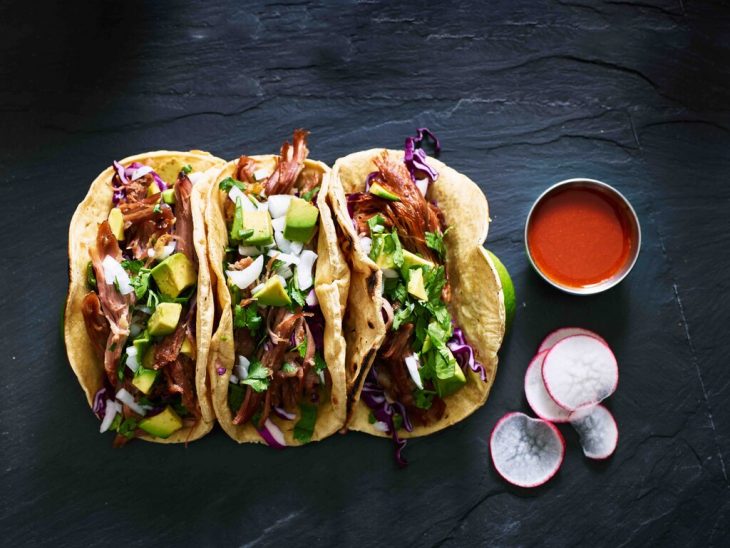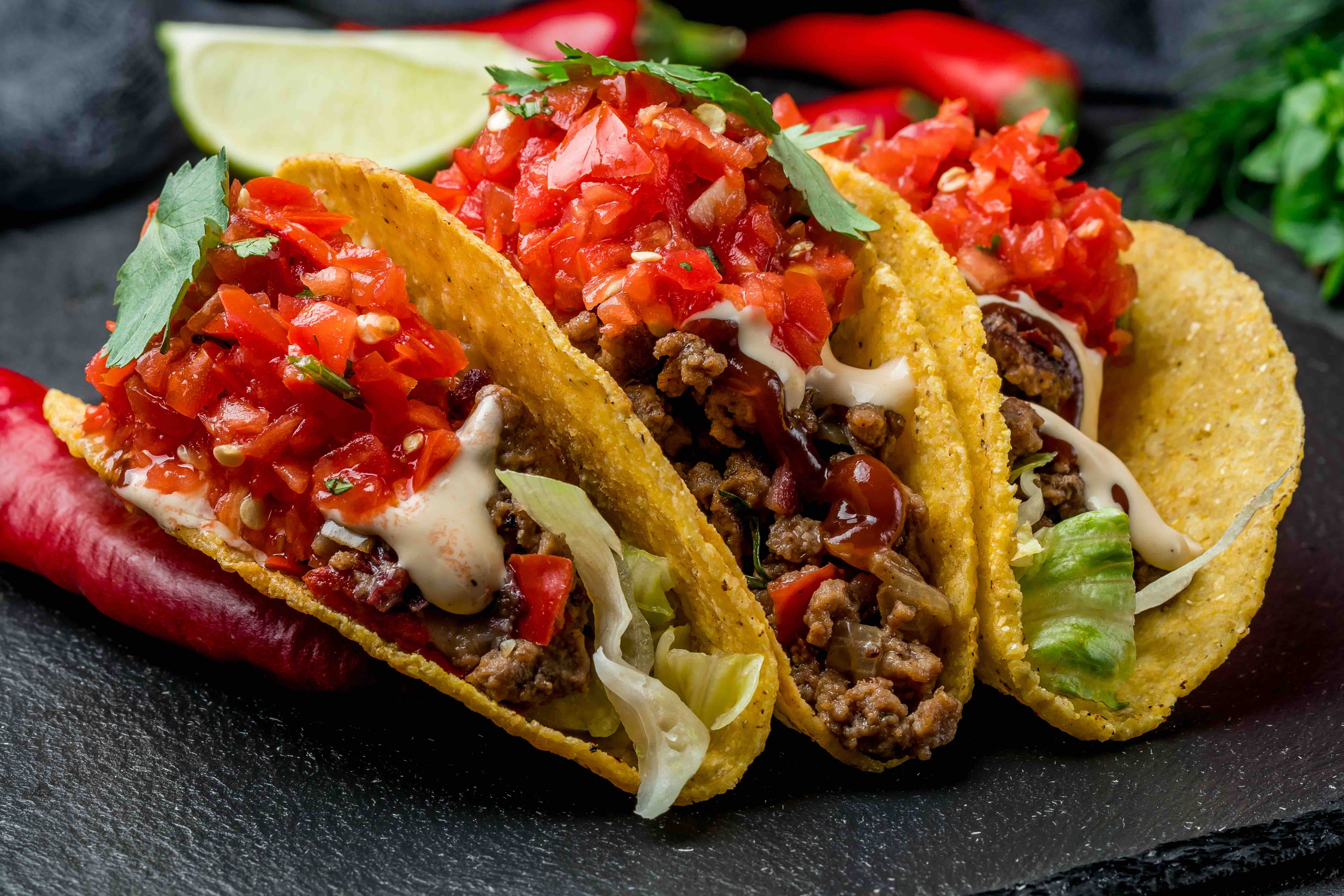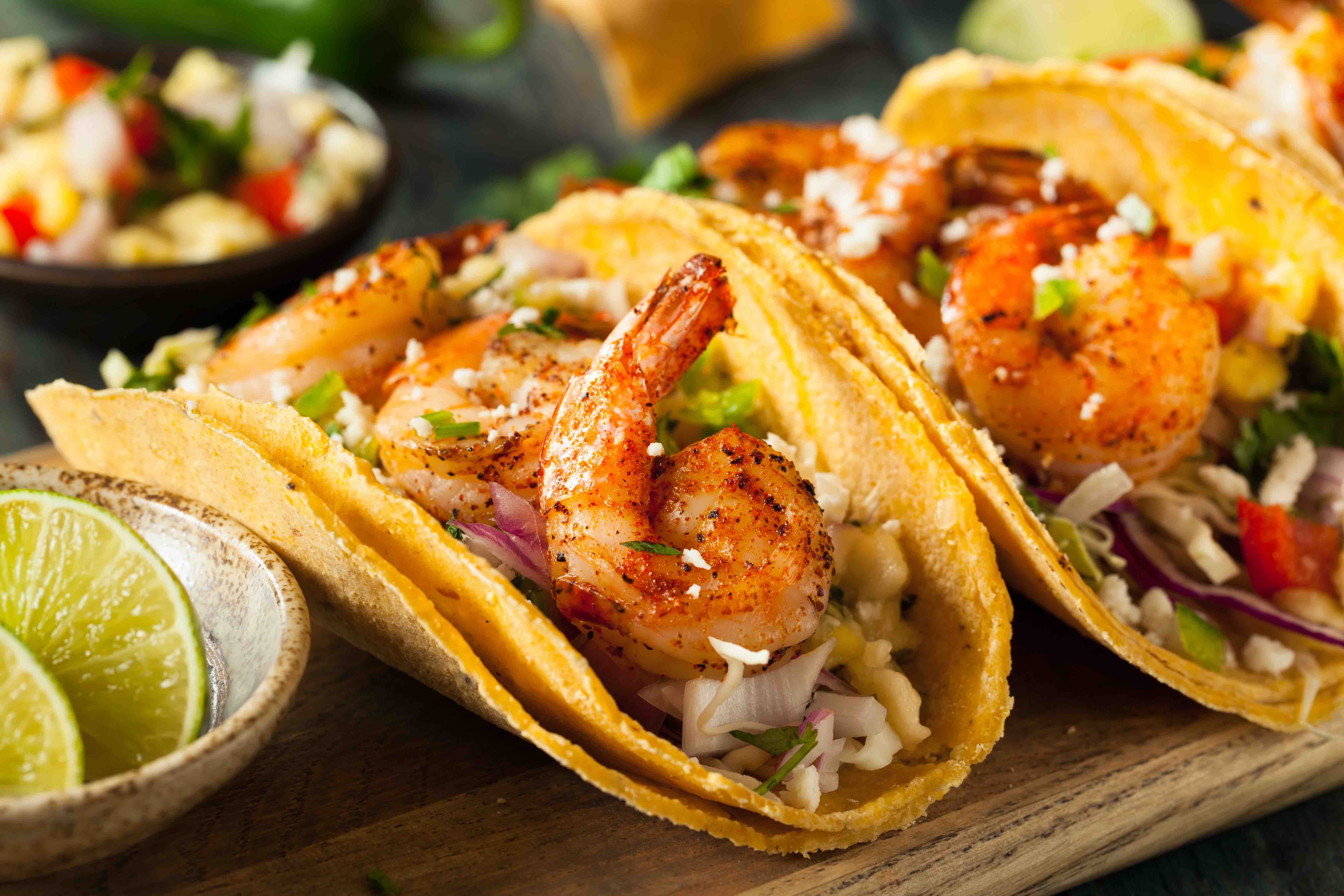
Tacos, those mouthwatering marvels wrapped in a tortilla, have become a global sensation, igniting a fiesta of flavors on our taste buds. A symbol of the vibrant Tex-Mex cuisine, tacos have transcended borders to become a globally adored food item. From street corners to fancy restaurants, tacos have captured the hearts and palates of food lovers everywhere. But before you grab another wrap, here are 16 taco nutrition facts that you should know.
What is Taco?
Tacos are a Mexican dish made from either a hard corn taco shell or a soft tortilla wrap. Taco uses ingredients like salsa, lettuce, guacamole, sour cream, cheese, and different types of meat like beef or chicken. Beef tacos are the most common type of tacos, and we will be focusing on the nutrition facts of beef tacos.
Calorie Composition
A standard beef taco with a hard shell can contain around 150-250 calories. Most Taco Bell tacos contain less than 200 calories. However, this can vary based on the fillings and toppings used. Furthermore, tacos with soft tortilla wraps contain lesser calories.
Carbohydrate Content
Depending on the shell and fillings, a single beef taco may contain around 15-20 g of carbohydrates, providing quick energy.

Protein Content
Tacos can be a good source of protein, particularly when filled with meat, poultry, or beans. An average beef taco could provide around 9 g of protein. If that’s not enough, then opt for a chicken taco, which has about 12-13 g of protein.
Fat Facts
A taco’s fat content can vary significantly based on the ingredients. A beef taco might contain around 8-10 g of fat, but this can increase with high-fat toppings like cheese, sour cream, and guacamole. For a cleaner diet, go for fish tacos which have about 12 grams of fat, most of which are Omega-3.
Fiber Factor
Tacos can provide dietary fiber, especially when loaded with beans, and veggies, or when using a whole-grain shell. A taco with beans could offer around 3-5 g of fiber. However, a soft wheat tortilla wrap can bring up this value.
High in Sodium
Tacos can be high in sodium, ranging anywhere from 550-600 mg. This is mainly due to the seasonings used in the fillings and toppings. Be mindful of this if you’re watching your sodium intake.
Low in Sugar
Tacos are typically low in sugar unless sweet toppings or sauces like ketchup are added.
Cholesterol Content
Generally, a single serving of beef taco has about 26-28 mg of cholesterol. The cholesterol content in tacos depends largely on the fillings. Tacos with animal-based proteins like beef or pork will contain more cholesterol than vegetarian or fish options.

Iron Intake
Tacos can provide iron, especially those with beef or bean fillings. Iron is essential for oxygen transport in the body.
Calcium
Beef tacos with cheese have about 125 milligrams of calcium. You can add more cheese to increase your calcium intake, though that would also mean increasing your overall calorie count.
Vitamin Richness
Tacos can provide various vitamins, including Vitamin A from leafy greens or tomatoes, Vitamin C from fresh salsa, and several B vitamins from meat or beans.
Gluten-Free Tacos
Corn-based taco shells are typically gluten-free, making them a suitable option for those with gluten intolerance or celiac disease.
Vegan and Vegetarian Tacos
Plant-based tacos, filled with veggies, beans, or tofu, are a great option for vegetarians and vegans. They provide ample amounts of vitamins as well as protein to reach your daily value intake.
Seafood Tacos
Seafood tacos, particularly those with grilled fish or shrimp, are a leaner, protein-rich alternative to meat-filled tacos.

Nutritional Variations
The nutritional profile of a taco can vary drastically based on its size, the type of shell used, and the fillings and toppings chosen.
Homemade vs. Store-Bought
Homemade tacos can be healthier, as you can control the ingredients and portion sizes, reducing unnecessary calories and sodium. Also, store-bought or fast-food tacos may contain trans fats, particularly if the meat is fried or the shell is commercially produced. As always, it’s wise to check the nutrition label.
Final Word – Are tacos healthy?
Yes, they are. A single taco, be it beef, chicken, seafood, or vegetarian can be a healthy balanced meal. You just need to be mindful of how much fillings and toppings you choose, and not go overboard with the sauces. So go ahead and grab a taco or two. As they say in Mexico, “¡Buen provecho!” (Enjoy your meal!)
Was this page helpful?
Our commitment to delivering trustworthy and engaging content is at the heart of what we do. Each fact on our site is contributed by real users like you, bringing a wealth of diverse insights and information. To ensure the highest standards of accuracy and reliability, our dedicated editors meticulously review each submission. This process guarantees that the facts we share are not only fascinating but also credible. Trust in our commitment to quality and authenticity as you explore and learn with us.
